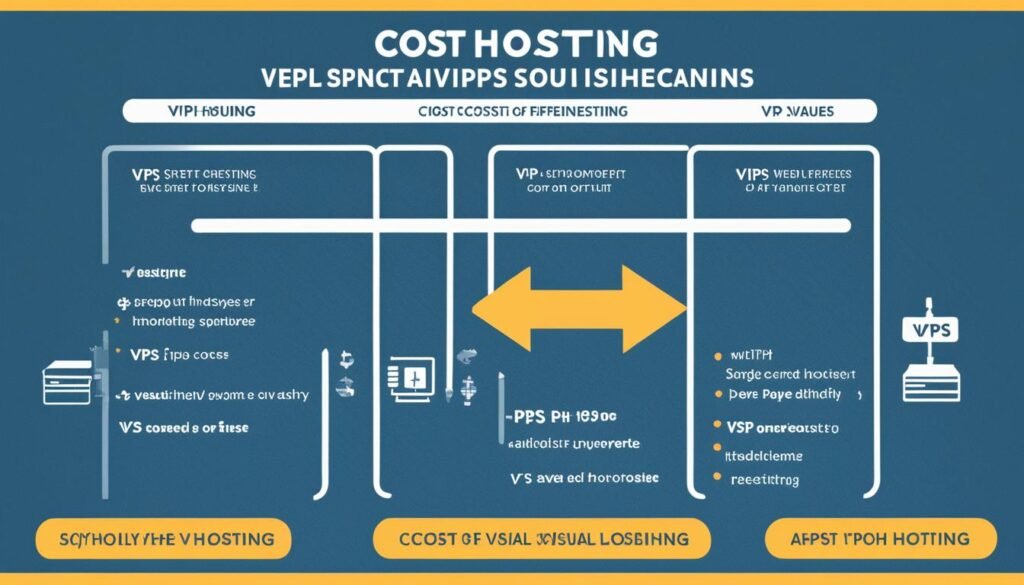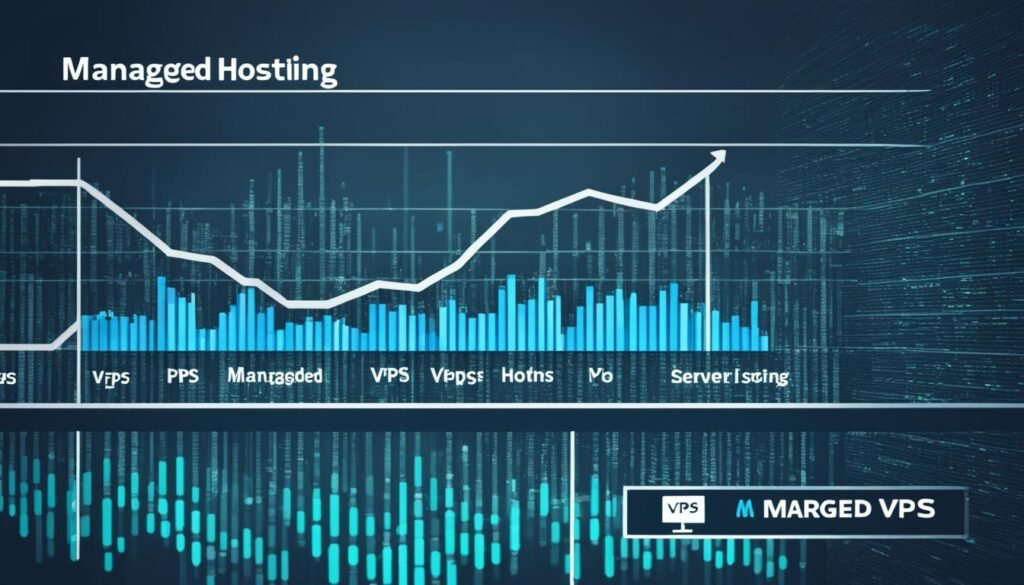VPS hosting is a popular choice for many websites, offering performance, scalability, and flexibility. However, it’s essential to understand how it compares to other hosting options to find the best fit for your needs. In this article, we will analyze VPS hosting in comparison to other options like dedicated hosting and shared hosting plans. By examining factors such as performance, scalability, flexibility, and cost, you can make an informed decision on which hosting option is right for you.
Key Takeaways: Other Hosting Options
- VPS hosting provides a balance between performance and affordability
- Other hosting options include dedicated hosting and shared hosting plans
- Consider factors like scalability, flexibility, and cost when choosing a hosting solution
- Compare the performance, resources, and security offered by different hosting providers
- Analyze your website’s specific needs and budget before making a decision
What is VPS Hosting?
VPS hosting, short for virtual private server hosting, is a popular choice for many website owners. It utilizes virtualized environments and partitioned physical servers to offer hosting services that combine the benefits of both shared hosting and dedicated hosting. In a VPS hosting setup, you have access to dedicated resources within a shared physical server.
This unique architecture allows for better performance, scalability, and cost-efficiency compared to other hosting options. The virtualized environment ensures that your website operates in an isolated space, providing dedicated resources like RAM, CPU, and storage.
- Performance: With dedicated resources, your website enjoys enhanced performance and faster loading times, ensuring a smooth user experience.
- Scalability: As your website grows, you can easily scale up your resources to meet increased demands. VPS hosting allows for easy resource allocation and expansion.
- Cost-efficiency: Compared to dedicated hosting plans, VPS hosting is a more affordable option. You get the benefits of dedicated resources at a fraction of the cost.
Overall, VPS hosting provides a reliable and flexible hosting solution for websites of all sizes. Whether you are running a small blog or managing a high-traffic e-commerce site, VPS hosting can meet your performance and scalability needs without breaking the bank.
Features of VPS Hosting
In addition to its performance, scalability, and cost advantages, VPS hosting offers several key features that contribute to its popularity:
- Full Root Access: With VPS hosting, you have full control over your server environment. You can install custom software, make configuration changes, and manage security settings according to your specific requirements.
- Flexibility: VPS hosting allows you to easily upgrade or downgrade your resources as needed. You can adjust your server specifications to match the evolving needs of your website.
- Security: The virtualized environment provides a high level of security. Each VPS is isolated from others, reducing the risk of security breaches.
In conclusion, VPS hosting offers a powerful combination of performance, scalability, and cost-efficiency. It is an ideal hosting solution for businesses and individuals looking to optimize their website’s performance without the expense of dedicated hosting.
Shared Hosting vs VPS Hosting

When it comes to hosting your website, shared hosting and VPS hosting are two popular options to consider. Each option has its own advantages and considerations, so it’s important to weigh them carefully based on your specific requirements. Let’s dive into the details of shared hosting and VPS hosting to help you make an informed decision.
Shared Hosting: Affordability and Shared Resources
Shared hosting involves sharing server resources with other users. It’s an affordable option, making it ideal for small businesses, personal websites, and blogs. With shared hosting, you’re allocated a portion of the server’s resources, including storage space, bandwidth, and processing power.
Shared hosting is a cost-effective solution as the server’s overall cost is divided among multiple users. It’s the right choice if you have limited technical knowledge and don’t anticipate significant growth in website traffic.
However, since resources are shared among users, performance may vary based on the activity of other websites on the same server. High traffic on other sites can potentially impact the speed and responsiveness of your own website.
Here’s a table comparing shared hosting and VPS hosting:
| Shared Hosting | VPS Hosting |
|---|---|
| Affordable | Scalable |
| Shared server resources | Dedicated server resources |
| Limited customization options | More control and flexibility |
| Suitable for small websites | Ideal for growing websites |
VPS Hosting: Scalability and Dedicated Resources
VPS hosting stands for virtual private server hosting. It provides dedicated resources within a shared server environment. With VPS hosting, your website operates independently of other websites on the same server, offering better scalability and performance.
VPS hosting allows you to scale your resources as your website grows. You can easily upgrade your plan to access additional storage, bandwidth, and processing power. This makes VPS hosting suitable for websites with increasing traffic and resource-intensive applications.
In a VPS hosting environment, you have greater control and flexibility over your server. You can customize server settings and install software applications that best suit your needs. This level of control ensures optimal website performance and security.
Here’s a quote from leading hosting provider, Bluehost, about VPS hosting:
“VPS hosting is an affordable alternative to dedicated hosting without compromising performance. You get the benefits of a dedicated server within a virtualized environment, allowing for better scalability and resource allocation.”
As you can see, VPS hosting offers dedicated resources and greater flexibility, but it comes at a higher cost compared to shared hosting. Consider your website’s growth potential, resource requirements, and budget when choosing between shared hosting and VPS hosting.
Remember, shared hosting is a cost-effective option suitable for small websites with limited traffic and technical expertise. VPS hosting is best for websites that require scalable resources and improved performance. Choose the hosting solution that aligns with your website’s needs and goals.
Next, we’ll compare dedicated hosting and VPS hosting to help you make an informed decision. Keep reading!
Dedicated Hosting vs VPS Hosting

When it comes to choosing the right hosting option for your website, two popular choices are dedicated hosting and VPS hosting. While both options provide dedicated resources for your website, they offer different features and benefits. Let’s take a closer look at dedicated hosting and VPS hosting to understand their differences and determine which option is best suited for your needs.
Hardware Resources and Flexibility
Dedicated hosting offers full access to the server’s hardware resources, providing you with complete control over the server environment. This means you can customize and optimize the server to meet your specific requirements. With dedicated hosting, you have the flexibility to choose the hardware configuration, software, and operating system that best suit your needs. This high level of customizability allows for better performance and tailored solutions.
VPS hosting, on the other hand, offers a more cost-effective way of accessing server infrastructure. It provides a virtualized environment within a shared physical server. While you don’t have full control over the hardware resources like in dedicated hosting, VPS hosting allows for flexibility in reallocating resources. You can easily upgrade or downgrade your server resources based on your evolving needs without experiencing any downtime. This scalability and flexibility make VPS hosting a popular choice for businesses that require adaptable hosting solutions.
Scalability and Scalability
Scalability is an important factor to consider when choosing a hosting option. Dedicated hosting offers excellent scalability as it allows you to add more resources to your server as your website grows. However, scaling a dedicated server can be time-consuming and costly as it requires physically adding additional drives or components to the server.
VPS hosting, on the other hand, offers a more convenient way of scaling your resources. By simply upgrading your server subscription or reallocating resources within the virtual environment, you can easily scale your VPS without any physical modifications. This makes VPS hosting a more flexible and scalable option compared to dedicated hosting.
Comparing Dedicated Hosting and VPS Hosting
Let’s summarize the key differences between dedicated hosting and VPS hosting:
| Dedicated Hosting | VPS Hosting |
|---|---|
| Full access to hardware resources | Flexible resource allocation |
| High customizability | Scalability without physical modifications |
| Costlier option | More cost-effective |
Ultimately, the choice between dedicated hosting and VPS hosting depends on your specific requirements and technical knowledge. If you need complete control over your server environment and have the budget for it, dedicated hosting provides unparalleled flexibility and customizability. On the other hand, if cost-effectiveness, scalability, and easy resource allocation are important factors, VPS hosting offers a more suitable solution. Analyze your hosting requirements and consider both options to make an informed decision for your website.
Performance Comparison: VPS Hosting vs Other Options

When it comes to performance, VPS hosting offers a good balance between affordability and capacity. VPS hosting uses virtualization technology to allocate resources to each virtual server, ensuring independent operation and scalability.
In terms of performance, VPS hosting provides a reliable solution that can meet the needs of most websites. While shared hosting plans may suffer from limitations due to shared resources, VPS hosting offers dedicated resources within a shared server environment. This means that the performance of your website is not affected by the activities of other users on the same server.
“VPS hosting provides a higher level of performance compared to shared hosting plans. It allows for better utilization of resources and provides improved speed and responsiveness for your website.”
Compared to dedicated hosting, VPS hosting offers a more cost-effective option with similar performance capabilities. While dedicated hosting plans provide improved capacity, they come at a higher cost. VPS hosting, on the other hand, offers dedicated resources within a shared server environment, allowing you to take advantage of the benefits of a dedicated server without the added expenses.
The use of virtualization technology in VPS hosting ensures that each virtual server operates independently, providing better performance and scalability. This allows you to easily scale your website as it grows, without experiencing any significant disruptions to your site’s performance.
Furthermore, the flexibility of VPS hosting enables you to allocate resources as needed, ensuring optimal performance for your website. This means that you can easily adjust the allocation of resources such as CPU, RAM, and storage based on your website’s requirements.
Performance Comparison: VPS Hosting vs Other Options
| Performance | Cost | Scalability | Resources | |
|---|---|---|---|---|
| VPS Hosting | Good | Affordable | Scalable | Dedicated resources within a shared server |
| Dedicated Hosting | High | Expensive | Scalable | Full access to server’s hardware resources |
| Shared Hosting | Variable | Affordable | Limited | Shared resources with other users |
The table above provides a brief summary of the performance comparison between VPS hosting, dedicated hosting, and shared hosting plans.
Scalability and Flexibility: VPS Hosting vs Other Options

VPS hosting offers greater scalability and flexibility compared to other options like dedicated servers. While dedicated servers require physically adding additional drives to the server for scaling, which can be costly and cause downtime, VPS hosting allows you to easily upgrade your server subscription or reallocate resources within the virtual environment. This makes scaling a VPS faster, more cost-effective, and more convenient than scaling a dedicated server.
VPS hosting’s scalability is achieved through the use of virtualized environments and partitioned physical servers. These virtualized environments provide the ability to allocate and reallocate resources as needed, ensuring that your website can handle fluctuations in traffic and resource demands. Whether your website experiences sudden spikes in traffic or requires additional resources to accommodate growth, VPS hosting has the flexibility to scale up or down quickly.
Additionally, VPS hosting provides flexibility in resource allocation. With dedicated servers, you have fixed hardware resources that may not be fully utilized at all times. In contrast, VPS hosting allows you to adjust the allocation of CPU, RAM, and storage resources based on your specific needs. This flexibility enables you to optimize resource usage and ensure efficient operation of your website while minimizing costs.
“VPS hosting offers greater scalability and flexibility compared to other options like dedicated servers.”
Comparing Scalability and Flexibility: VPS Hosting vs Dedicated Servers
To better understand the advantages of VPS hosting in terms of scalability and flexibility, let’s compare it to dedicated servers:
| Aspect | VPS Hosting | Dedicated Servers |
|---|---|---|
| Scaling | Easily upgrade server subscription or reallocate resources within the virtual environment | Physically add additional drives to the server |
| Cost | More cost-effective due to shared physical server and resource allocation | Higher cost for full ownership of dedicated hardware resources |
| Flexibility | Adjust resource allocation (CPU, RAM, storage) based on specific needs | Fixed hardware resources that may not be fully utilized |
The table above highlights the key differences between VPS hosting and dedicated servers in terms of scalability and flexibility. While dedicated servers may offer more control over hardware resources, they can be less flexible and costlier to scale. On the other hand, VPS hosting provides a more efficient and cost-effective solution for websites that require scalability and adaptable resource allocation.
Cost Comparison: VPS Hosting vs Other Options

When considering different hosting options for your website, cost is an important factor to consider. VPS hosting is a cost-effective choice compared to dedicated servers. Although VPS hosting offers only a fraction of the hardware resources provided by dedicated servers, it strikes a good balance between performance and affordability, making it a popular option for many website owners.
Before making a decision, it is essential to evaluate your performance requirements and budget. Dedicated servers come with extensive hardware resources, which can provide impressive performance, but they also come with a higher cost. On the other hand, VPS hosting offers reasonably priced plans that suit a wide range of performance requirements.
With VPS hosting, you get dedicated resources within a shared environment, allowing you to optimize performance without breaking the bank. This makes it a suitable choice for small to medium-sized websites that need reliable performance on a budget.
VPS hosting provides a cost-effective solution, offering a good balance between performance and affordability for websites with average performance requirements.
To help you visualize the cost comparison between VPS hosting and dedicated servers, take a look at the table below:
| Hosting Option | Hardware Resources | Cost |
|---|---|---|
| VPS Hosting | Partial resources | Lower cost |
| Dedicated Server | Full resources | Higher cost |
As shown in the table, VPS hosting offers a cost advantage compared to dedicated servers. By using VPS hosting, you can allocate resources efficiently while keeping your expenses in check. It’s crucial to consider both the performance requirements of your website and your budget when making a decision.
Ultimately, the cost comparison between VPS hosting and other options like dedicated servers underscores the importance of aligning your hosting choice with your specific needs. If you prioritize performance and don’t mind the higher cost, dedicated servers may be a better fit. However, if you’re looking for a cost-effective solution that still delivers satisfactory performance, VPS hosting is a compelling choice.
Remember, finding the right hosting option involves weighing various factors beyond cost, such as scalability, performance, and resource requirements. Consider your website’s specific needs and consult with hosting providers to make an informed decision that aligns with your goals.
Security Considerations: VPS Hosting vs Other Options

When it comes to website hosting, security is a top priority. In this section, we will compare the security aspects of VPS hosting with other options, such as dedicated servers. It’s essential to understand the differences and consider your security requirements and flexibility needs.
Level of Security Offered
Both VPS hosting and dedicated servers provide a high level of security. VPS hosting offers a secure environment within a virtualized setup. It utilizes isolation techniques to prevent unauthorized access and protect your data. While VPS hosting is generally secure, it’s important to note that underlying hardware limitations may impose certain restrictions.
Dedicated servers, on the other hand, offer enhanced security features due to their fully owned environments. You have complete control over security configurations and can implement advanced measures to safeguard your website and sensitive information. If you have specific security requirements or need to comply with regulations, dedicated servers may be the preferred choice.
Regulatory Compliance Considerations
In certain industries, regulatory compliance is crucial. Depending on the nature of your website and the industry you operate in, dedicated servers might be necessary to fulfill compliance requirements. Dedicated servers allow for more customization and control over security measures, making it easier to adhere to specific regulations.
While VPS hosting can address many security concerns, it’s important to evaluate whether it meets the regulatory demands of your industry. Consider consulting with industry experts or legal advisors to ensure you choose the right hosting option that aligns with the regulatory compliance needs of your business.
Flexibility in Security Configurations
When it comes to flexibility in security configurations, dedicated servers offer more options. As you have complete control over the server environment, you can implement customized security measures tailored to your specific needs. This level of flexibility is beneficial if you have unique security requirements or if your website handles sensitive customer data.
VPS hosting also offers a secure environment, but there may be limitations in terms of security configurations due to shared hardware resources. While providers implement multiple security layers, flexibility may be restricted compared to dedicated servers.
Choosing the Right Hosting Solution
When selecting the right hosting solution, it’s crucial to evaluate your security requirements and compliance needs. Consider the level of security offered by each option, the regulatory demands of your industry, and the flexibility you require in terms of security configurations.
Table: Security Comparison: VPS Hosting vs Other Options
| VPS Hosting | Dedicated Server | |
|---|---|---|
| Level of Security | High (within virtualized setup) | High (with fully owned environments) |
| Regulatory Compliance | May have restrictions; evaluate compliance needs | Easier to adhere to specific regulations |
| Flexibility in Security Configurations | Some restrictions due to shared hardware | Complete control and customization |
By carefully considering the security features, regulatory compliance requirements, and flexibility in security configurations, you can make an informed decision when choosing between VPS hosting and dedicated servers.
Managed Hosting vs VPS Hosting

When it comes to hosting options, managed hosting and VPS hosting are two popular choices worth considering. Managed hosting involves entrusting the server management tasks to a hosting provider, allowing you to focus on your website’s content without the need for technical expertise. On the other hand, VPS hosting provides more customization and control over the server environment, catering to those with specific requirements and technical knowledge.
Here’s a closer look at the key differences between managed hosting and VPS hosting:
Technical Expertise
Managed hosting is designed for individuals or businesses who lack technical expertise but still want a reliable and secure hosting solution. By outsourcing server management tasks to a hosting provider, you can save time and effort while ensuring that your website runs smoothly. On the contrary, VPS hosting requires a certain level of technical knowledge to manage and configure the virtual server environment according to your specific needs.
Customization and Control
If customization and control are paramount to your hosting experience, VPS hosting provides the flexibility you need. With VPS hosting, you have the ability to tailor the server environment to suit your requirements. This includes choosing the operating system, installing specific software, and adjusting resource allocations for optimal performance. Managed hosting, while providing convenience, typically has limited customization options since the hosting provider handles the server management tasks.
Performance
When it comes to performance, both managed hosting and VPS hosting can deliver satisfactory results. However, VPS hosting offers an advantage in terms of resource allocation. With VPS hosting, you have dedicated resources within a virtualized environment, which can result in better performance compared to shared resources in managed hosting.
Cost
The cost of hosting is an important consideration for many website owners. Managed hosting, due to the additional services provided by the hosting provider, typically comes at a higher price point. VPS hosting, on the other hand, offers a more cost-effective solution since you are responsible for managing the server environment. It’s important to weigh the benefits and costs of each option based on your specific needs and budget.
Ultimately, the choice between managed hosting and VPS hosting depends on your technical expertise, customization requirements, and budget. If you prefer a hands-off approach and want a hosting provider to handle server management, managed hosting is the way to go. However, if you value customization, control, and cost-effectiveness, VPS hosting may be the better choice for you.
| Managed Hosting | VPS Hosting | |
|---|---|---|
| Technical Expertise | Minimal | Required |
| Customization and Control | Limited | Extensive |
| Performance | Satisfactory | Optimal |
| Cost | Higher | Cost-effective |
Use this table as a summary to compare managed hosting and VPS hosting based on key factors.
Cloud Hosting vs VPS Hosting

When considering hosting options for your website, you may come across two popular choices: cloud hosting and VPS hosting. Both options offer scalability and improved uptime compared to shared hosting plans, making them suitable for websites that experience high traffic volumes. Let’s explore the differences between these two options and how they can meet your website’s needs.
Scalability and Uptime
Scalability is an important factor to consider when choosing a hosting solution. Cloud hosting utilizes multiple servers to balance traffic and provide increased uptime. This means that if one server experiences a problem, your website can seamlessly switch to another server, minimizing downtime and ensuring high availability. On the other hand, VPS hosting uses virtual machines within a shared physical server to provide dedicated resources. While VPS hosting is scalable, it may not offer the same level of scalability as cloud hosting due to the limitations of the physical server.
The Power of Multiple Servers
Cloud hosting’s use of multiple servers offers several advantages. It allows for better resource allocation, as the workload can be distributed across various servers, ensuring optimal performance. This also makes cloud hosting highly resilient to hardware failures, as the workload can be shifted to other servers in the network. Additionally, cloud hosting is known for its ability to handle high traffic volumes effectively, making it an ideal choice for websites that experience significant fluctuations in visitor numbers.
Choosing the Right Option
When deciding between cloud hosting and VPS hosting, it’s important to consider your website’s expected traffic and scalability needs. If your website anticipates rapid growth or experiences unpredictable traffic spikes, cloud hosting’s scalability and robust infrastructure make it a compelling choice. On the other hand, if you require dedicated resources and value the cost-effectiveness of using a virtualized environment within a shared physical server, VPS hosting may be the better option for you.
A Comparison Table
| Feature | Cloud Hosting | VPS Hosting |
|---|---|---|
| Scalability | High scalability due to multiple servers | Offers scalability, but limited by the physical server |
| Uptime | High uptime with the ability to switch to other servers | Reliable uptime, but potential for downtime during hardware failures |
| Resource Allocation | Optimal resource allocation across multiple servers | Dedicated resources within a shared physical server |
| Traffic Handling | Can effectively handle high traffic volumes | Scalable but may have limitations for sudden spikes in traffic |
The Final Verdict
Ultimately, the choice between cloud hosting and VPS hosting depends on your specific needs and priorities. If scalability, uptime, and the ability to handle high traffic volumes are critical factors for your website, cloud hosting may be the best option. However, if you prefer dedicated resources within a virtualized environment and value the cost-effectiveness of sharing a physical server, VPS hosting can be a reliable choice. Consider your website’s requirements, budget, and future growth projections to make an informed decision.
Best web hosting services of 2024
In 2024, the best web hosting services prioritize speed, security, and reliability. Companies like Amazon Web Services (AWS), Google Cloud Platform, and Microsoft Azure offer scalable solutions with robust infrastructure and global reach. Additionally, specialized hosting providers like SiteGround, Bluehost, and HostGator excel in user-friendly interfaces, excellent customer support, and competitive pricing. For businesses requiring advanced features, platforms like WordPress.com and Shopify provide tailored solutions for content management and e-commerce. In this dynamic landscape, the best web hosting service ultimately depends on individual needs, balancing factors such as performance, support, and affordability.
The Best Web Hosting Services for 2024
In 2024, the best web hosting services cater to diverse needs with cutting-edge technology and exceptional support. Amazon Web Services (AWS) continues to lead with its scalable cloud solutions, offering unparalleled reliability and performance. Google Cloud Platform impresses with its innovative features and global infrastructure, ensuring seamless user experiences. Bluehost stands out for its user-friendly interface and reliable service, making it an excellent choice for small businesses and bloggers. For those seeking specialized solutions, SiteGround excels in WordPress hosting, providing optimized performance and security. Ultimately, the best web hosting service for 2024 depends on individual requirements, balancing factors like performance, features, and support.
Best Web Hosting Plans With Added-value
The best web hosting plans with added value in 2024 offer more than just basic hosting services. Providers like SiteGround and Bluehost include free SSL certificates, domain registration, and site migration services, enhancing convenience and security for users. DreamHost offers unlimited bandwidth and storage alongside a free domain and automatic WordPress updates, streamlining website management. HostGator’s plans come with a free website builder and marketing tools, empowering businesses to create and promote their online presence efficiently. Additionally, providers like A2 Hosting prioritize speed with SSD storage and turbo servers, ensuring optimal performance for websites. These added features elevate the hosting experience, providing comprehensive solutions for users.
What Is Email Hosting?
Email hosting is a service that provides users with email accounts that are associated with their domain name. Unlike free email services like Gmail or Yahoo, email hosting allows businesses and individuals to have custom email addresses (e.g., yourname@yourdomain.com). It typically includes features such as mailbox storage, spam filtering, and email forwarding. Email hosting services may also offer additional features like calendar integration, contact management, and collaboration tools. By utilizing email hosting, users can maintain a professional image, enhance branding, and have greater control over their email communications, all while enjoying reliable and secure email services.
Best For Fast VPS Hosting Solutions
For rapid VPS hosting solutions in 2024, providers like DigitalOcean, Linode, and Vultr excel with their lightning-fast performance and scalable infrastructure. Leveraging solid-state drives (SSDs), advanced virtualization technologies, and optimized network configurations, these providers deliver exceptional speed and responsiveness for demanding applications and websites. Additionally, they offer flexible pricing plans, robust APIs, and extensive documentation, empowering developers to deploy and manage VPS instances efficiently. Whether for high-traffic websites, resource-intensive applications, or development environments, DigitalOcean, Linode, and Vultr stand out as top choices for fast VPS hosting solutions, ensuring seamless performance and reliability.
Also Read: How To Choose The Best Shared Hosting Provider For Your Needs
Conclusion
In conclusion, VPS hosting offers a scalable, cost-effective, and flexible hosting option compared to other alternatives like dedicated hosting and shared hosting plans. With its performance and affordability, VPS hosting has become a popular choice for many website owners, providing a good balance between the two.
When choosing a hosting option, it is crucial to consider your website’s specific needs, technical expertise, and budget. By analyzing the scalability, performance, and cost considerations, you can make an informed decision that aligns with your website’s requirements.
Overall, VPS hosting stands out as a reliable choice for websites looking for a hosting solution that offers the right balance of performance, scalability, and cost. By carefully considering your options and understanding your website’s needs, you’ll be able to select the hosting solution that best suits your requirements and helps your website thrive.
FAQs
Q: What is VPS hosting and how does it differ from other hosting options?
A: VPS hosting stands for Virtual Private Server hosting, which provides a dedicated virtual server within a shared hosting environment. It is more flexible and scalable compared to shared hosting, offering better performance and resources.
Q: How to choose the best web hosting service for my website?
A: To choose the best web hosting service, consider factors like your website’s requirements, uptime guarantee, customer support, price, scalability, and reviews from other users.
Q: What are the main types of web hosting available in 2024?
A: The main types of web hosting services in 2024 include shared hosting, VPS hosting, dedicated hosting, cloud hosting, and WordPress hosting.
Q: Why should I opt for VPS hosting over shared hosting?
A: VPS hosting offers more control, better performance, increased security, and scalability as compared to shared hosting. It is ideal for websites with higher traffic or specific customization requirements.
Q: What are the key features of a good web hosting provider?
A: A good web hosting provider should offer reliable uptime, adequate storage and bandwidth, secure data centers, responsive customer support, easy scalability options, and additional features like SSL certificates and website builders.
Q: What is the difference between VPS hosting and dedicated hosting?
A: VPS hosting provides a virtual server within a shared environment, offering more flexibility and cost-effectiveness. Dedicated hosting provides a physical server dedicated solely to one user, offering the highest level of performance and control, but at a higher cost.
Q: How can I ensure I choose the best hosting plan for my website’s needs?
A: To choose the best hosting plan, assess your website’s requirements in terms of traffic, resource usage, budget, scalability, and specific features needed. Compare different hosting plans offered by providers to find the most suitable one.




